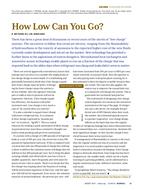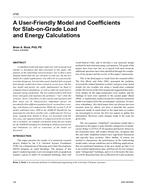Click here to purchase
The infrastructure systems and their effective and reliable operation is a pre-requisite for delivery of services for HVAC and energy-responsiveness, services, mobility, and interactivity for the built environment. Investments of large magnitude can be better delivered through geo-collaboration between cities, and regions. Innovative public private partnerships, corroborating with local needs, policies and resources can manifest into effective projects design, monitoring and control. International collaboration, common in scientific research, education and finance, needs to be transposed to capacity building and management of multi-faceted infrastructure projects. Buildings systems including lighting and HVAC consume nearly 40% of total energy use. To lower their carbon footprint, buildings need to lower waste, recover and recycle to perform significantly better than they had been doing. Need in regional economies is for innovations for self-sustainable habitats with minimum pollution levels, optimized energy supplies, adequate security, scalable and adaptable to different situations. A well-coordinated collaborative approach is favored to benefit from nexus between smart buildings, power and HVAC systems, IAQ, and environment. Such well-coordinated infrastructure can also adopt to global weather changes and emergencies. A conceptual framework is presented for development of robust, and resilient infrastructure along with fostering skills and job creation. Technologies need to be adapted, to ensure that the right applications are employed, tailored to the specific characteristics of the individual buildings and cities.
Citation: 4th Intl Conf: Efficient Bldg Design
Product Details
- Published:
- 2020
- Number of Pages:
- 8
- Units of Measure:
- Dual
- File Size:
- 1 file , 3.6 MB
- Product Code(s):
- D-ICEB20-33


